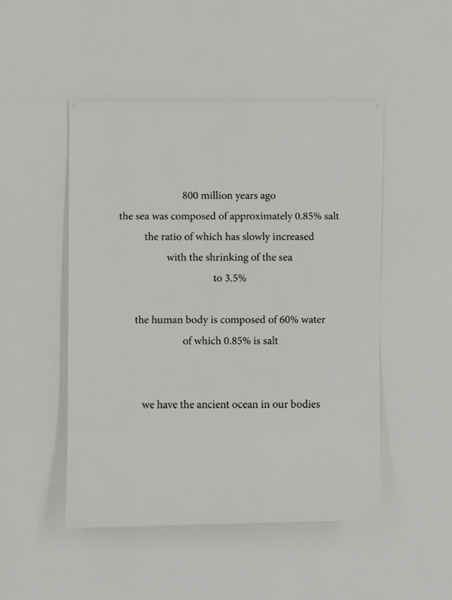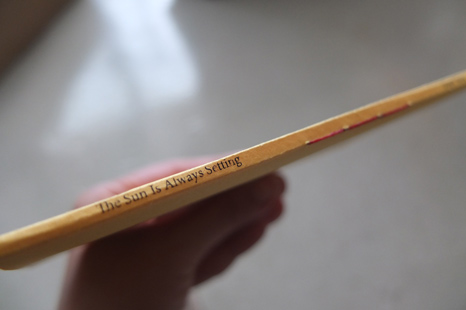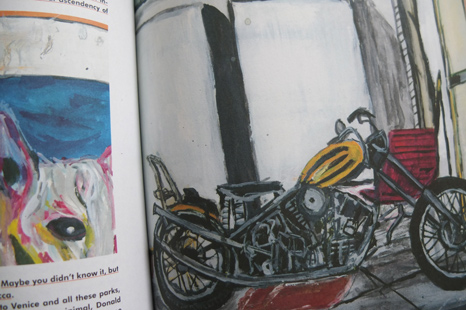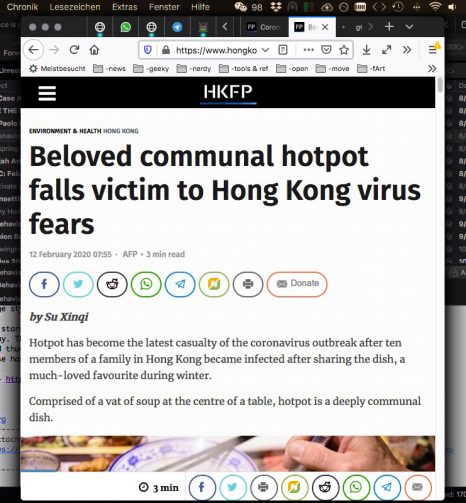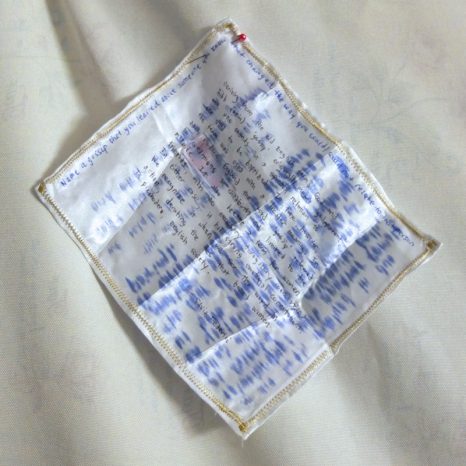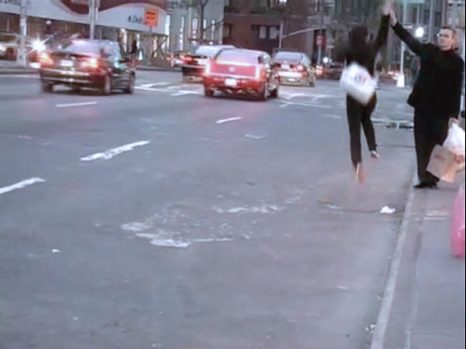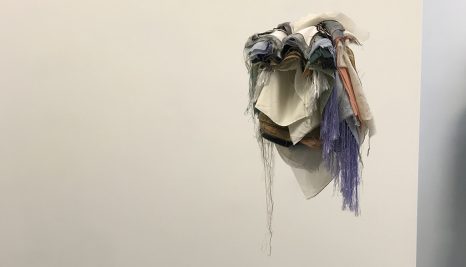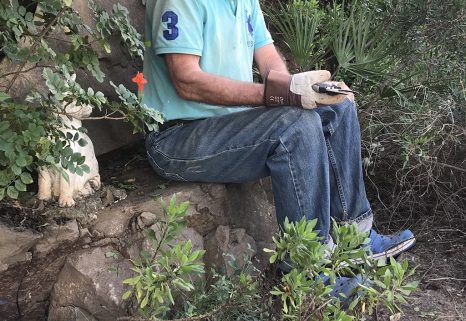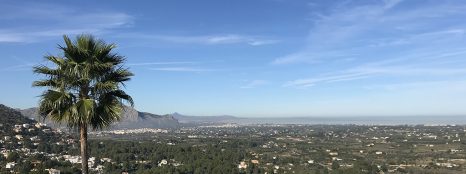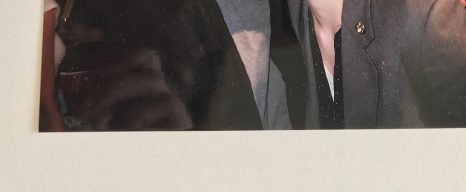With the exception of one fateful date, the four other exercises that I designed for Visual Diary Archive were each put together with a specific person in mind. I don’t speak to any of them so often anymore, and with distances, it sometimes becomes difficult to know where and how to begin again. Words don’t always bridge gaps, and perhaps neither do images, but if a series of exercises incite certain actions, I wonder what new thoughts, imaginations or understandings may be filled in the spaces between us.
The other quandary or surprise this brings us is the question of participation. It was because of a lack of general participation that I decided to ask a single person to respond to the exercises for me, and since each exercise had also been addressed to a singularity, it somehow made sense for this text-based response to be as well. So this is for Boat——less far, but also some distance away. I thought we would be connected by the expanse of sea next to our cities, but after checking the map I realised that the water where you are has a different name than the water where I am, even if water is fluid and I don’t want to believe it has bounds.
…
Nina and Asako made a work together in 2014 called The soup of a body past: notes on evaporation. Here is an image of the text that was printed and hung in the space:
And so I think now, along with Fotini and pictures of words, of the similarity between water and thoughts flowing between us, like ancient salts that both wound and heal us over time. Do you know the English idiom about rubbing salt into someone’s wounds? It means to make a bad situation worse, to aggravate it.
When we talked recently about togetherness, about how to participate in a project about being together, it felt almost like salt, like our non-togetherness being amplified by discussing it, and after that long back-and-forth of messages, I cried, alone. It felt bad, but maybe like the tolerance for salt, alcohol, and drugs, resilience grows with experience, so I really cannot say it was an overly aggravated situation. Unlike the connoisseur, after all this time I would prefer to make less judgements about who and what are wrong or right or bad or good. But maybe we can keep searching for new words or images or thoughts to simply keep describing the taste of these things. Like the quandary or surprise of your participation, I want to meet something outside of myself and get to know it better.
What I mean is, if it was a less than ideal situation that hardly a soul volunteered their images or words to this project, maybe it was kind of salty to finally see your contributions——several being what I saw as misunderstandings of the instructions. I think anyone who has asked anything of anyone else will know this taste. Let’s call it the strange flavour of ‘participation’ or ‘getting others to do things’, together or not. Sometimes it comes in the form of ‘collaboration’ (what Eyal Weizman calls the ‘very absolute extreme’ of participation), sometimes ‘coercion’ (what parents sometimes have to do to get their children’s compliance), and very often ‘compromise’ (what we as independent, less than star practitioners have to do within the systems that we would often rather confront). In this instance, there are two layers of participation: one requested from a general audience on the Internet; and secondly, the participation from you, which was performed as a favour to me. Both may be described as the kind of slightly disappointing or wounded salt of things not happening as were expected, but maybe I have to suck on this a bit more, to allow a passage of flavours to come through in engaging with that (non)participation. Something more like the 鹹梅 salty plums I used to love when I was a child——sour, sweet, bitter, savoury and salty.
So if I am to try to take in these five images you posted just a little bit longer, yes, some things made me squirm a little bit, or laugh, doubt, affirm, feel perplexed, and/or smile. The date 2020-06-30 got replaced by a longing for Shanghai about one year earlier, and it felt at first like a betrayal to all that 2020-06-30 means for Hong Kong. On the date of your photo, 2019-05-26, chosen for some other reason of which I am not aware, things had actually already begun boiling here. You, living next to waters with a different name, are not expected to have known that. And so your participation with rain in another city on another day defuses the centrality of importance, like maybe the way that rain probably was once a particle of air which was once part of an ocean with a wholly other name.
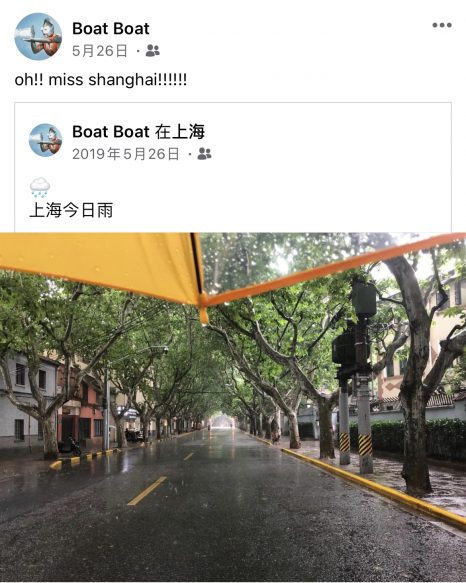 Submitted to Visual Diary Archive by 張小船 Boat Zhang for 2020-06-30
Submitted to Visual Diary Archive by 張小船 Boat Zhang for 2020-06-30
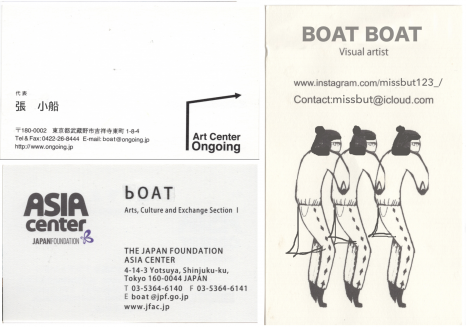 Submitted to Visual Diary Archive by 張小船 Boat Zhang for Fotini
Submitted to Visual Diary Archive by 張小船 Boat Zhang for Fotini
But you want us to know your name. 張小船, big B – big O – big A – big T (x2), little b – big O – big A – big T. I had initially imagined the Fotini exercise to locate searches for meaning, like when we take photos of pages from books to replace taking notes, or record signs as a way of remembering. You’ve shared yourself with us here, in a few guises but you all the same, funnily captured in a print format that is mostly outdated, though it makes sense in the context of you living now in Japan and with what I had asked you before in an audio recording also dedicated to you. So yes, ‘a lot of Boat’——meaning, and a string of things to remember.
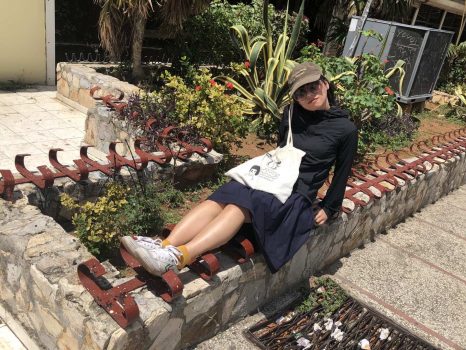 Submitted to Visual Diary Archive by 張小船 Boat Zhang for 京蘊 Anouchka
Submitted to Visual Diary Archive by 張小船 Boat Zhang for 京蘊 Anouchka
You appeared again with Anouchka, and it was so surprising to see you, ordinarily so shy, now leaning back in this very forthright position, looking at the camera confidently, even if hidden under a cap and sunglasses. Those metal bars must be the Cuban counter to the kind of structures they put in the parks and underpasses of Hong Kong——manmade objects to keep people from public spaces. No loitering, no sitting, no sleeping. But there you are, sitting defiantly on top of them, and though it must be quite uncomfortable, you reveal in the caption the immunity offered by being in the eye of a crush. Now he is crushed in prison and your small secret opened up in the maze of someone else’s archive.
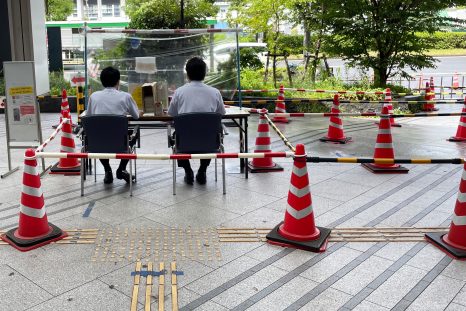 Submitted to Visual Diary Archive by 張小船 Boat Zhang for Nisan
Submitted to Visual Diary Archive by 張小船 Boat Zhang for Nisan
Nisan would probably not be pleased that I’ve translated her idea for a continuous line among discrete objects in this way. So maybe it is fitting that your image leaves a very small gap in the line, which, if we were to put together with the other photos, would break the horizon. It’s not certain whether this subtle subversion on your part was purposeful or simply a visual opening of the ‘rules of participation’, but I’m glad it would be you to do it, just as I am thankful that it would be you to tell me during a long and painful back-and-forth all the horrible things that have gone astray and still be my friend.
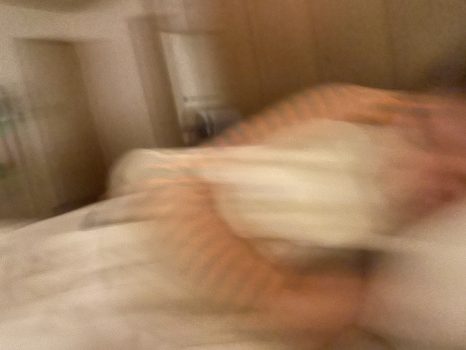 Submitted to Visual Diary Archive by 張小船 Boat Zhang for Nina
Submitted to Visual Diary Archive by 張小船 Boat Zhang for Nina
And maybe that’s why the last one, Nina, is the one to end on, because it’s another intimate space between you and a lover. This time you are the photographer, but for all the power within that role it is a sudden fear from the sudden movement of his sleeping body that clicked this shutter. And this is quite a complex story for a mistaken photograph——at least compared to the majority that I had collected and cannot place at all except by virtue of the photographs taken before and after. Your photo for Nina bears similar warm tones as the ones that she has collected in her archive, though hers are mostly created by the redness of light seeping through skin.
…
I want thousands of beads of sweat from my body to seep through my skin and slip into an ocean that has one name on one side and another name on another. Sometimes these oceans are named after people, while you, on the other side from here, are named after the vessel that keeps us afloat on the sea. It was the most cheeky and romantic of things for your parents to do, but like these images, what I like most are for these smallest of intimacies to be laid bare in a plain space for anyone to know and see, the most subtle invitation for participation. An act of taking notice.
And after those long hours of talking about ‘getting people to do things’, it is still difficult to come up with answers. But you contacted me tonight as I wrote this text, asking for a favour.
So for now——simply——yes, of course.
Posted by 丫 | reply »epistolary formations (for Ĵ, Ş, Ȼ and Ḅ)
dearest yous,
digital crumbs here in response to those things you said, those things you sent, real material ways and a digital means. ‘i am sorry for the delayed reply’ prefaces so many of these formations, followed mostly by the mental hesitation for apologising too much. though it’s nice to hear ‘no need to apologise’ in response sometimes, it takes a sorry to get there. truly sorry for too many things.
lateness somehow psychologically necessitated a more involved response, if this so-called ‘publicness’ can warrant any more meaningfulness. actually i told Ḅ that what i like most here is the anonymous intimacy of passerby in public, because being an outmoded place, it’s hidden in plain sight, Emily Dickinson style. there was a period when i wrote little notes and left them in random places, too, and i found one a few years ago that didn’t get distributed, so sent it to Ẳ in the post along with a bunch of other random things, but i think the clutter of it all overwhelmed her, so there was not much conversation about it afterwards. at the time, her son could just fit the quarter-sized sample jacket i made in fashion school.
so many things need explaining.
and your faith astounds me sometimes. but i guess we still make (it) work. it’s perhaps not so dissimilar——nudity in public, intimacies for those who were never keen at p.d.a., the weaning separation from one’s body that is called a work.
Art is insufficient to narrate the inhumanity of history, because it is insufficient to explain it. Disaster is either explained by means of psychology, or the savagery of society is described as if it were a supernatural event; fascism is presented ‘as the machination of rackets outside society, not as the coming-to-itself of society as such.’
-from The Orpheus Double Bind: What Can Writing Save?, Nurdan Gürbilek
and what would you say to those that don’t watch films, don’t really read books, don’t dance? aren’t they terrible, those people, how are you going to explain it to them? how are you going to wish for them the thing that changed you and you don’t regret it not one bit, except all the times you fail to explain it to your stern mother or that person in power that you wanted to impress. you’re sorry.
Ş, i like the digitised irony that your rooms reminded me of playing Hitchhiker’s Guide to the Galaxy, or growing up choosing my own adventure——though you don’t say ‘you’. but something like she says, it wasn’t birds but paper speaking——your real, material and actual post, Ş, so carefully bound by hand and sent to me across the Pacific just as you said you would, when most people don’t. and with that I have to tell you, unapologetically sorry, that I haven’t forgotten what I said I would send to you. it’s not ready yet, hopefully soon.
“Time the Great Healer (live at the Boston Museum of Fine Arts, 5 September 2006)”, Cat Power
though today i put off work to deal with a number of personal matters. and really that is an irony as well, as if they were separate in these realms, you know what i mean, but again it’s something about still learning to explain after all this time, i have to reiterate myself and you to yous again and again, because you weren’t listening and in my anger i don’t hear myself. maybe you’ll say i have to listen more in order to be heard. maybe.
i like that the package from Ĵ, one of the most dedicated in believing the romance of ‘art’ and ‘post’ all these years, came this time not directly from you but by the smooth spaces of guanxi through the editorial office of a magazine based in Spain. i like that you once fleetingly included me in one issue, and still hope that we’ll have that chance for a two-day dialogue over sidewalk beers some day.
“ピンクブッチ Pink Butch (ラララ Lalala)”, マジカル・パワー・マコ Magical Power Mako
i like that an e-mail from Ȼ seems so anachronistic amidst all of our other conversations online, that the tone differs by that very fact and that you’ve encouraged me thus to write poems in Chinese, like Ɀ also showed me, so simply, how line breaks make all the difference.
did i show you the poem he helped me to break?
每當你不在(身邊),我念及你的時候
總有許多的話,想要對你說
距離慢慢縮短,空間卻變得
越來越厚重
文字難以承載的那些話題
總與天氣有關
一種中間狀態,它從來不明白你
或者是我
我們侃侃而談
談論愛
卻總是不夠
— from the 視覺博物誌 Visual Diary Archive project “其人,其事:何京蕴 Just People, Just Timing: Anouchka”
and for Ḅ, who joined us most recently and 那麼有耐心 accompanied me 陪著我 so patiently on the 坐今天的山車 roller coaster of today:
Posted by 丫 | reply »
但願您也在這裡 (finding greetings series no. 4)
紐約 New York – 蘇黎世 Zürich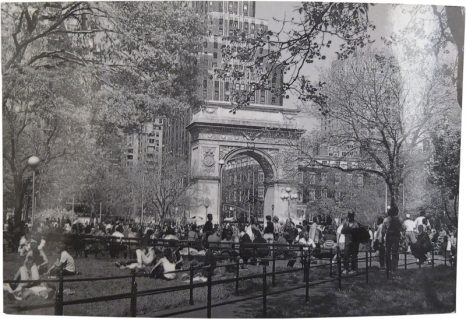
Washington Square Park
Photo: Battman
Piece of the Rainbow
©1993 New York
北伊羅戈省丁格拉斯 Dingras, Ilocos Norte – 斜坡村 Incline Village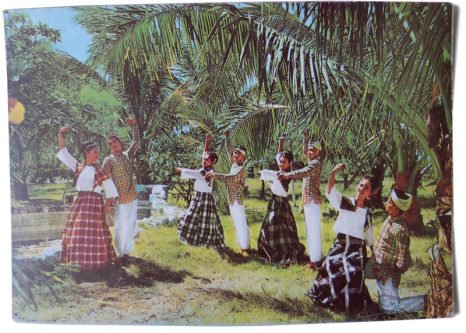
Ilocana a Nasudi
A dance of the Manongs and the Manangs, elder couple known for their religiousness.
Courtesy of: Barangay Folk Dance Troupe
Philippine Normal College
奧克蘭 Oakland – 首爾 Seoul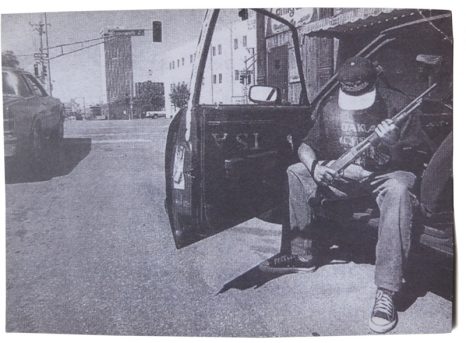
Alberto Chou
索倫托 sorrento – 新加坡 singapore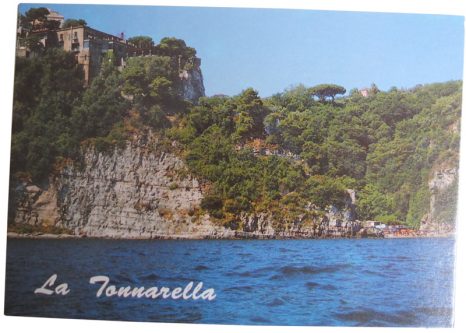
Pensione Ristorante La Tonnarella
Casella Postale 22 – Via Capo, 31
Tel. 081/8781153 Fax 081/8782169
80067 Sorrento
this set was posted March 2020, three-quarters known to be successfully received, though one never realised as it was intended. i guess it’s still in singapore and you’ve moved on to taipei now, busy with digital things. then there’s one from you on the way, though i’ve also moved on, around the corner of the sea since then, and it will be a while before that post box can be checked. it’s the same post box that you sent your painting to, the one that was too small for the painting so the delivery person had used long rubber bands to strap it to the face of the box. you wished you had seen what that looked like when i told you about it, but unfortunately i had forgotten to take a photo. your painting is now framed and hanging at an odd angle from a pipe above my kitchen.
recently during a bonding session about mutual compulsive collecting habits, i told p about how i pilfer the werbung from other post boxes in my building, the unsolicited pieces that have nice plastic packaging that i can reuse to wrap other things. Once there was also a sticker advertising plumbing services, i have quite a few of them now. Very pretty.
it’s no surprise that all these things material and immaterial circle around one another like cyborgs and spirituality. he calls it the ‘eternal network‘. Looking again now from the current perspective of lonely immobility it feels sadly less anticipatory but only maudlin, a ‘radical inclusionism’ that makes most bored and need to leave the room. self-descriptive at best.
Posted by 丫 | reply »Textual Notes PWSSSRFS…
(there are reasons to think about my body and hygiene these days)
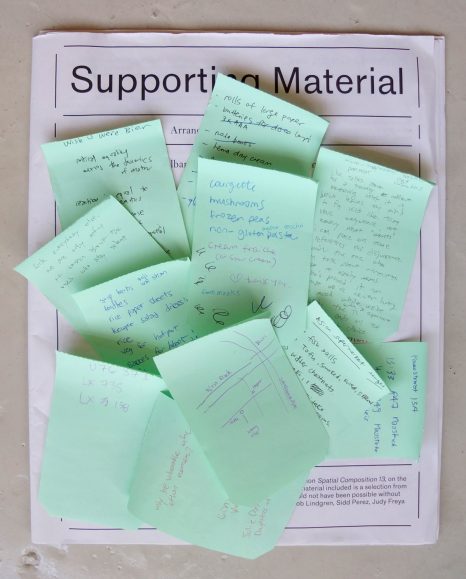
— Notes taken while on residency with Amy Suo WU at Motel Spatie; Arnhem Presikhaaf, 2020 January-February
In the time of that sojourn, a surface wound that stayed the entire time, irritated, flaming and hardened so much that it was narrated from being the oddity of a pimple on my hand to the paranoia of a wart-like abscess. It accompanied me during our conversations like a replacement for the biting of nails which had accompanied me since childhood, the extra psychosomatic conversation with myself to harmonise and discord with any other conversations going on in the room. And we spoke about intersectionality.
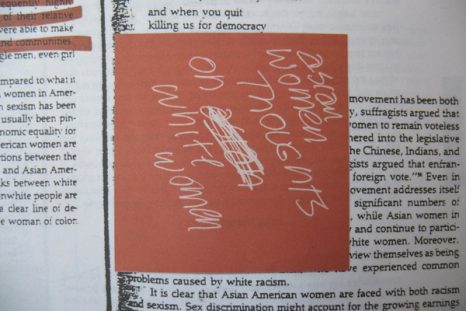
— from “Worlds in Collision: Multicultural Art History (Selection)” by Carlos VILLA, from Supporting Material by Celine CONDORELLI
I picked at it, making it bleed and scab over more than once, wondering if this would be the lifelong marker with which to remember this time. Other people get tattoos for such occasions, but somehow for me bruises, scars and mosquito bites were always enough. Sometimes I liked to think about the tiniest bit of spittle from an insect you never saw being smuggled transnationally, at peak seasons such that your body could carry two nationalities of mosquito saliva at the same time, recognisably different by the radius of red and degree of itch.
It was only a surface. But as my skin-scoring became manic, I remembered one of the first meals we shared together, when we were happy to find a few pairs of disposable chopsticks in the otherwise fork-and-knife-loaded space. A bit too brashly did I rip apart the two sticks and rub their ends together so as to smooth the rough edges in the way that we had learned, and somehow a little bamboo splinter had lodged itself into the meat between the thumb and forefinger of my right hand. This is the pressure point you are supposed to massage in order to release anxieties, and so it was that this residency——initially planned as an artistic labour——unfolded into my body subversively with a small army of histamines hardening a point known as 合谷 hégŭ, or LI-4. Like a pain to help release pain.
I had been telling everyone that it had been such a difficult year for me, or for most people in my context, rather, but now, when I had limited this sabbatical purposefully to run back into the fire, that heat seemed to flake away into something much more quietly insurrectionary, like the last hibernation before the end of the world. What were we gathering amidst these stories and meetings, me picking self-consciously at a surface wound on the back of my hand and scheming in those vague ways afforded by poetry? Would it be possible to be productive about this care in letting go, somewhere in between concern and a manic extraction of the conversation one has with oneself, parasiting off of the glimmers of knowledge and joy and jealousy of these people around me. So many intensities.
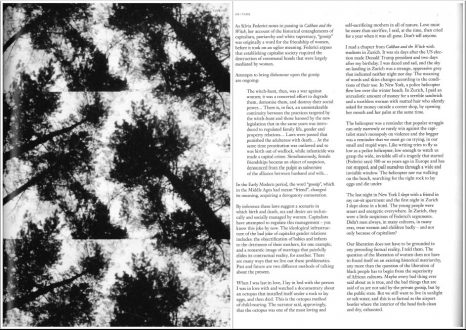
— “Witch-hunt: gossip has always been a secret language of friendship and resistance between women”, Hannah BLACK
In many parts of the world, women have historically been seen as the weaver of memory——those who keep alive the voices of the past and the histories of the communities, who transmit them to the future generations and, in so doing, create a collective identity and profound sense of cohesion. There are also those who hand down acquired knowledges and wisdoms——concerning medical remedies, the problems of the heart, and the understanding of human behaviour, starting with that of men. Labelling all this production of knowledge ‘gossip’ is part of the degradation of women——it is a continuation of the demonologist’s construction of the stereotypical women as prone to malignity, envious of other people’s wealth and power, and ready to lend an ear to the Devil. It is in this way that women have been silenced and to this day excluded from many places where decisions are taken, deprived of the possibility of defining their own experiences, and forced to cope with men’s misogynous or ldealised portraits of them. But we are regaining our knowledge. As a woman recently put it in a meeting on the meaning of witchcraft, the magic is: “We know that we know”.
— Witches, Witching-hunting and Women, Silvia FEDERICI
Among you, it becomes difficult to compare all that has been said to all that has not been said. All of these conversations. And these words are a conversation with those conversations, if not simply out of a question of translation but out of the need to make space for myself in this constellation of you(s) and me(s). To ascertain, like that book I took from your bookshelf: Feelings are Facts. We(s) would need to meditate through hours and hours of these discourses in order to sift though the medley of feelings that make up this moment, and that is a fact, too. Yes, as the witches say, “We know that we know“.
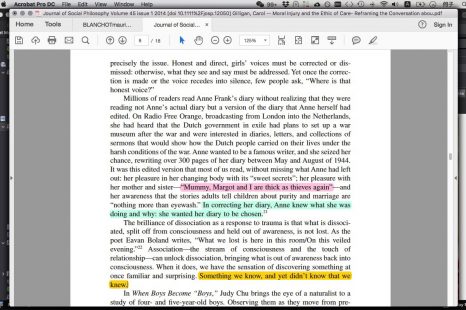
— “Moral Injury and the Ethic of Care: Reframing the Conversation about Differences”, Carol GILLIGAN
And maybe I know too many things. My head is filled with all sorts of banalities like the facial expressions of strangers and the taste of your favourite Grüner Veltliner and the prick of winter mosquitoes. Like the approximate sojourn of a piece of shit that appeared a few days after I arrived. It was the lack of anyone’s care to remove it from the narrow path between our residency room and the project space, making it such that you took the long route around every time, while I forged ahead to play hopscotch. I had the forethought that this dog I never saw had left the natural wastes of its circulating body just like the mosquitoes, and perhaps I should bring other contraband back this time as another memento of my stay. But an uncared-for poop was just a parallel temporary visitor like us to this space motel, and the day before I departed, what were now like hardened coal nubs finally blew away with that strange storm of not very much rain. Perhaps its winds were so great it blew its own rain away, a storm having a frightening conversation with itself. Its utterances came out like screeches and gales that shook the glass of our cove. From inside, we lifted our heads up in awe, and when we went outside we walked at strange angles with our heads down, pretending not to overhear. Buddha was also blown violently away that day, falling off of a neighbour’s balcony and left as an Asian corpse shattered in the white neighbourhood. In the beginning I kept thinking we would have been a strange sight here, our little crew, but actually there was nobody around most of the time, and we were left to play on our own like children at the slumber party. We stole time that way, turning their money and our own productivity into a space for taking care. Even so, I walked on that shit at least once, but you took time, and we cleaned up our tracks together. Self-quarantine, if you want to call it——I gained ten kilogrammes, too——but something else feels lighter because I know we had taken it on together. This takes space and so it was that ‘project ruimte’ was exactly that, not as the space for projects but a project to make space, as a fact of feelings between us——to read together with long pauses in between, to write letters from near and far, and to eat and resist the fallen communality of a shared meal out of one bowl. To be together and trust in someone else’s voice to guide when our eyes are closed.
I don’t know yet how to bring this space into visibility. And maybe it doesn’t have to, except as mischievous glances and giggles between those of us who know, and even if you don’t see us you will feel the smiles in our voices in that space behind your ears and in front of your neck——a tingling somewhere between an itch and a tickle to make chords and discords in you, too. Take care.
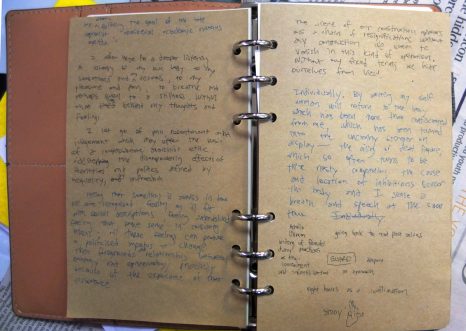
— Altered quotations and notes taken from the afwasdoekje reading group, PWSSSRFS No. 1, 2020 January 25
Posted by 丫 | reply »
elephants in the middle of nowhere
we keep missing that catch-up conversation, but “your absence fills the space”, and i’ll keep running. congratulations, dear s… until the next high-five.
left // internet, right // 理变奏曲 Variations on Lǐ (New York, 2006)
Posted by 丫 | reply »spring sprang sprung
sachiko learning to do a backflip in katsuhito ishii’s “the taste of tea”
Posted by f | reply »going everywhere, in stillness
This quote that you once used somewhere, it comes to you, the word emptiness is at the source and in a whim you remember it, but whom was it by and where to find it back – you search and it returns that you wrote it in a post. And the words that have been in you for a while and that potentially felt like an e-mail but to whom, to him? to her? it hits you, better a post. because that emptiness revisits you, an intense happiness, an intense sadness – again that unease, nausea, ‘tedium’, as was the word in that book you shared together so many years ago and was pivotal to you both and to this. i have to move, i have to get out of this place, a sucking motion nearly 12 years long, like hearing it’s been 20 years and not being able to believe, fathom it, crawl into that perspective.
And what caused all of this, a movie, annoyingly so a movie, something so inherently tasked to trigger your emotions. what are we here for, what of your mother, your father. do we forget all the things, the times, the moments, that we share, the details are lost at least. and then right at that moment she calls. you imagine the green hills and the ocean view.
..to fill the emptiness with emptiness and thus to share it.
“Ik wilde eigenlijk al een hele tijd je terug mailen. Om in ieder geval een soort van formeel antwoord op het open einde van de aankoop te geven die informeel al via de chat voorbij kwam. Maar eerst kom ik toch maar terug op die film, goed, slecht, goed, slecht, het blijft heen en weer gaan, en heb hem toch maar nog een keer gekeken, en nog een keer, voor mij heel ongewoon.”
the way sounds, music, make you remember things you’d forgotten about yourself
Posted by a | more »
但願您也在這裡 (finding greetings series no. 2)
布拉格 prague – 舊金山 san francisco
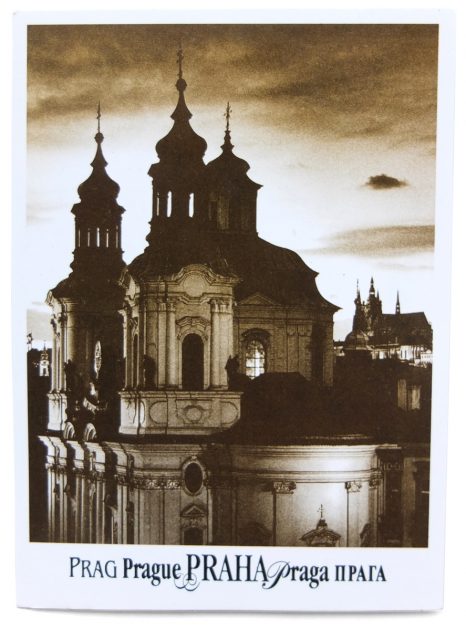
kostel sv. mikuláše na starém městě (the church of St. Nicholas on the Old Town)
i wanted to be everywhere, all the time. but somehow time stumbled, fell down, and we were led to change genres because nobody took us seriously. or was it simply taking the time to get back to roots, ironic after that white dude’s patronising joke thirteen years ago (so you came to China to find your roots, eh?), me and my roots, everywhere, all the time. keeping it real is just something really really difficult, you know.
you know, just letting you know, you’ll be an arrival point because there’s a one-way love letter at stake, like determined roots and you, the water between my fingers.
重慶 chongqing – 星加坡 singapore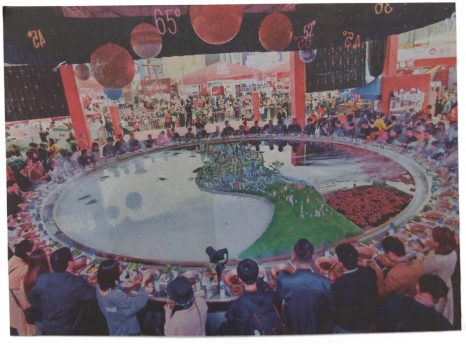
a hearty welcome: a massive dish showcasing Chongqing’s sprawling high-rises greets visitors at the opening of the Hotpot Cuisine Culture Festival yesterday. The pot——a reflection of Chinese people’s culinary passion——is divided into two, with half containing light-flavoured broth and the other half, a spicy variation. Models of skyscrapers sit in the middle. The municipality is widely regarded as the origin of hotpot.
紐約 new york – 紐約 new york
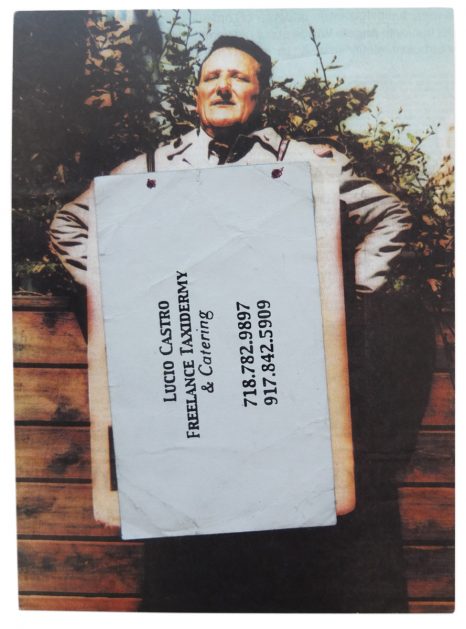
i started to realise the meaning of repetition. maybe because i was once a teacher, and that’s what one does in school, spinning drills, tires as hips. an exercise machine for getting old and being afraid of being forgotten.
you weren’t so didactic, but romantic still loops. we won’t call it like that because you wanted agency, 醒了 and 行了 again and again, aware of pretentions, but what recourse is there? you make your bed.
i make it again and again. and realise that actually that arendt bit is about systems, too. about the ecology of ‘it’s hard to be a good person’, being holistically compromised. about the distance between a sender and a receiver, about the logistical operations of the greatest love poets——”close to cynicism the way comedians are close to sadness”.
you realise、 you rise、 醒了 (a doubt about wokeness)、 行了.
